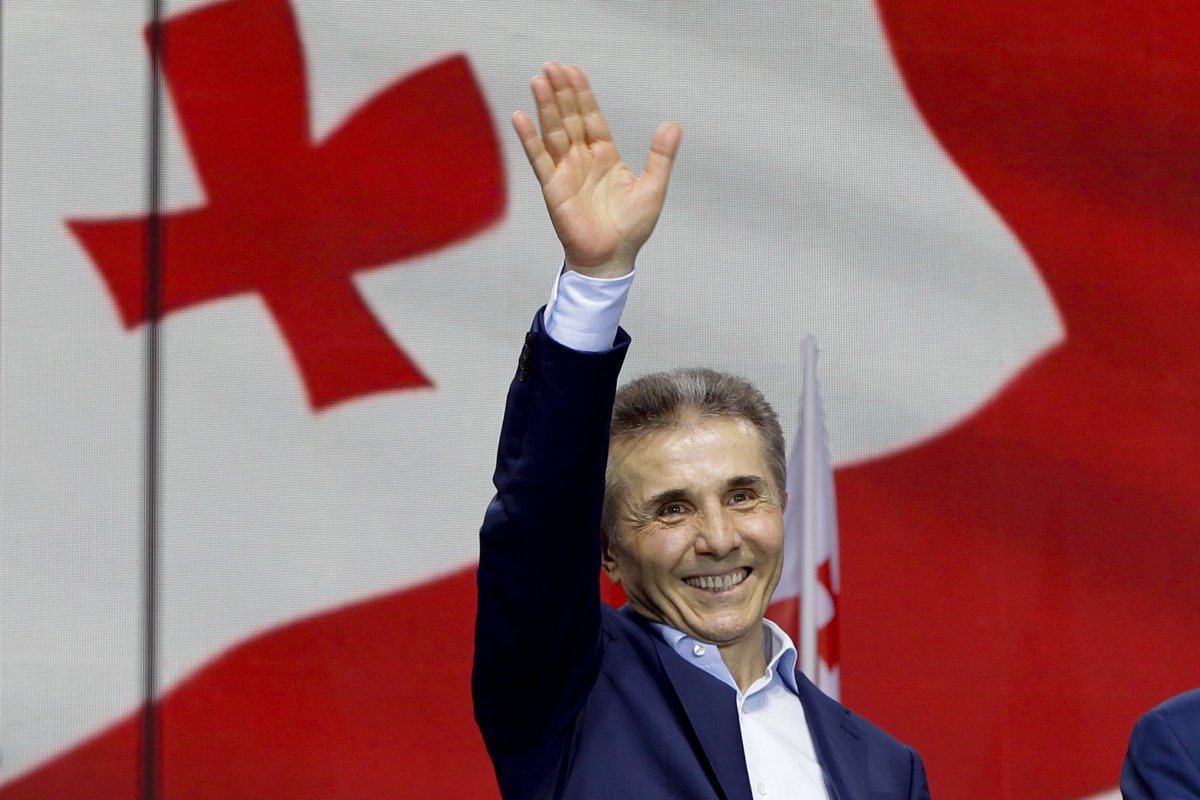Georgian President Salome Zourabichvili has urged Western nations to back protests opposing the results of her country’s recent parliamentary elections, which she says were marred by irregularities and Russian interference.
Zourabichvili said she refused to recognize the election outcome, which the ruling Georgian Dream party said it won.
The Georgian president asserted that the country had fallen prey to Russian pressure aimed at derailing its aspirations for European Union membership.
She said: “We’ve seen that Russian propaganda was directly used,” adding, “we need to have the firm support of our European partners, of our American partners.”
Zourabichvili also criticized the Georgian Dream party for allegedly colluding with Russian interests and possibly receiving support from Russian security services.
Georgian Dream, founded by Bidzina Ivanishvili, a billionaire with close ties to Russia, is accused of increasingly adopting authoritarian measures to suppress descent.

Kostya Manenkov/AP
Russian Interference
Joined by opposition leaders, Zourabichvili called on citizens to gather for a protest in Tbilisi on Monday night, denouncing the election as a “total falsification” and urging the public to resist what she described as the theft of their votes.
U.S. Secretary of State Antony Blinken said on social media that political leaders should uphold the rule of law and address deficiencies in the electoral process. He urged a move toward Georgia’s Euro-Atlantic future.
In contrast, the Kremlin dismissed allegations of interference, with spokesman Dmitry Peskov asserting that Russia had no intention of meddling in Georgia’s affairs. He said that Zourabichvili’s call for protests were aimed to destabilize the nation.
The Central Election Commission reported that Georgian Dream secured 54.8 percent of the vote, with nearly all ballots counted.

Shakh Aivazov/AP, file
Intimidation, Vote-buying, Violence
The European Union has halted Georgia’s membership process, citing the implementation of a “foreign influence law” in June, which many citizens interpreted as a direct threat to the country’s aspirations for EU integration.
The election, which took place in a nation of around 3.7 million people bordering Russia, was dominated by discussions of foreign policy and marred by allegations of a smear campaign.
Zourabichvili suggested that “Russian-style elections” were conducted, emphasizing the use of technology to facilitate vote manipulation, a claim echoed by international observers.
The election saw its highest voter turnout since Georgian Dream first came to power in 2012.
But European election monitors characterized the electoral climate as “divisive,” noting instances of intimidation, vote-buying, and violence.
The United National Movement opposition party reported an attack on its headquarters and media outlets detailing assaults on individuals outside polling stations.
The Georgian people embraced democracy yesterday. Now Georgia’s political leaders must respect the rule of law, repeal legislation that undermines fundamental freedoms, address deficiencies in the electoral process, and move Georgia toward its Euro-Atlantic future.
— Secretary Antony Blinken (@SecBlinken) October 28, 2024
Observers highlighted that electoral violations were especially pronounced in rural areas. In the predominantly Armenian Javakheti region, where Georgian Dream claimed nearly 90 percent of the vote, residents voiced skepticism about Georgia’s European aspirations, with some questioning why alignment with Europe was necessary at all.
Antonio López-Istúriz White, head of the European Parliament’s monitoring delegation, criticized Georgian Dream for employing “anti-Western rhetoric” while claiming to pursue European integration.
He described the election process as indicative of the ruling party’s “democratic backsliding.”
European Council President Charles Michel urged Georgian authorities to conduct a “swift, transparent, and independent investigation” into the reported irregularities, stressing the need for the ruling party to reaffirm its commitment to European values.
Despite the mounting criticism, Prime Minister Irakli Kobakhidze of Georgian Dream hailed the election results as “impressive and obvious,” adding that allegations of manipulation would ultimately fail.
Viktor Orban to Visit Tbilisi
Hungarian Prime Minister Viktor Orban was the first foreign leader to congratulate Georgian Dream and is set to visit Tbilisi shortly, further signaling the party’s international ties.
Electoral observers reported numerous violations, saying that the results failed to reflect the true will of the Georgian electorate.
Georgia’s historical relationship with Russia is fraught with tension; following independence from the Soviet Union in 1991, the two nations engaged in a brief war in 2008, and Russia continues to occupy 20 percent of Georgian territory. Yet, concerns persist that Georgian Dream is steering the nation away from Western alliances and toward Moscow.
As Georgia navigates this tumultuous political landscape, the implications of the election results could have far-reaching consequences for its future direction.
This article contains additional reporting from The Associated Press


